This two part series describes the Negelle Peace Accord that was developed and adopted by the traditional institutions and community members of the Borana, Gari, Guji and Gabra people residing in the bordering areas of Somali and Oromia regional states. The development of the accord followed a year-long peace process among the communities after violent conflict between the Borena and Gari in early 2009 disrupted their daily life and social relations.
Climate Change & The Negelle Accords, Part 2 of 2
17:13
Video Transcript
(00:04) By getting the buy-in of youth, we were able to ensure that...
(00:08) the peace process penetrated every level...
(00:13) of the community and that it would stick,...
(00:17) not just in the current generation, but also in the future generations as well.
(00:23) The second important social group was women.
(00:27) Their voices raised new issues.
(00:29) Women may not be on the front line of conflict,...
(00:34) but they are often deeply affected.
(00:36) Hudet resident Nyurama Nasan fled her village in 2009.
(00:46) When the conflict began we fled.
(00:48) Some carried children on their backs.
(00:50) Some were pregnant and carried babies.
(00:52) We ran and hid in the bush.
(00:59) Surviving in the bush was a great challenge.
(01:02) Many people died.
(01:04) We didn’t bring anything to shelter us,
(01:08) and there was nothing to eat or drink.
(01:12) People died in the fighting,
(01:15) but many more people died in the bush.
(01:19) But even those who stay at home suffer.
(01:24) We women are very much affected.
(01:27) When our husbands go to fight we are the ones
(01:32) left looking after the livestock and children.
(01:37) Our children go hungry during the conflict.
(01:42) As parents we see this affecting their health.
(01:45) It is very upsetting.
(01:52) But women can also contribute to conflict through acceptance...
(01:55) and amplification of traditional cultural attitudes...
(01:58) that encourage aggression.
(02:02) In times of tension between clans,
(02:04) women encourage violence,
(02:05) by nagging their men.
(02:07) Saying the enemy want to harm us
(02:09) and you do nothing.
(02:10) They say protect us, protect us.
(02:14) The men can’t resist the pressure.
(02:16) No man can refuse a woman’s plea.
(02:20) This attitude is often expressed through song.
(02:25) Our brothers, we are bonded.
(02:30) Our brothers, we are kin.
(02:35) We are brothers, standing together as one.
(02:39) How can you rest,
(02:41) when your brothers are being attacked?
(02:43) Brothers, how can you abandon them?
(02:45) Brothers, are you not strong?
(02:47) Brothers, how can you refuse to fight?
(02:49) They took our land, how can you do nothing?
(02:52) This is how women encourage our men to fight.
(02:57) My husband is dead. My son is also dead.
(03:02) What do women gain from war except loss?
(03:06) When we encourage fighting we gain nothing.
(03:12) Changing these attitudes would be critical...
(03:14) to transforming clan relationships
(03:20) We took part in women-only meetings.
(03:23) We discussed the role of women in the conflict,
(03:26) and what we should do if conflict breaks out.
(03:30) We were a key part of the peacemaking process.
(03:34) We talked a lot and gained many ideas.
(03:41) We learned ways to stop the fighting.
(03:44) They taught us how to stop conflicts escalating.
(03:44) Women can threaten to inform the authorities.
(03:52) if their menfolk plan to get involved in a conflict.
(03:57) We discovered many ways to prevent violence.
(04:01) Once the ground was set, clan elders...
(04:04) were encouraged to preside over grievance sessions.
(04:07) The objective was to encourage leaders to listen.
(04:11) Local people were encouraged to air their opinions...
(04:15) and the elders to incorporate them.
(04:15) and the elders to incorporate them.
(04:20) Our women spoke powerfully.
(04:24) They said conflict harms us, migration harms us.
(04:28) We must walk miles with children on our backs.
(04:32) and on our stomachs.
(04:35) During conflicts we must survive far from water.
(04:39) In war a man may be killed on the battlefield,
(04:42) but women must endure constant suffering.
(04:45) Listening to our women’s opinions
(04:47) changed how we viewed the conflict.
(04:52) With this information, the clan elders could begin their work.
(04:56) In a series of meetings, the representatives of each clan...
(05:00) worked together to form a peace agreement based on customary law.
(05:00) worked together to form a peace agreement based on customary law.
(05:06) Before long, they had a first draft. But, this was just the beginning
(05:11) Creating the foundations for a stable peace takes time.
(05:18) The past will be a process.
(05:20) In one day you can have an agreement,...
(05:20) The past will be a process.
(05:24) but I can assure you, that agreement will not work.
(05:27) So you need time to get to the wider community, you need time to get to the government,…
(05:34) you need time to get to the clan leaders, you need to get their buy-in.
(05:40) The elders took the agreement back to their communities for feedback.
(05:46) They then met again to work through the next draft.
(05:48) This process is repeated again and again.
(05:52) Every issue was debated at length, both between the clans,...
(05:56) and between the clans and the government.
(05:59) In the end, it took over 12 months of intense negotiation...
(06:03) before the leaders produced the definitive agreement.
(06:07) In February 2010, Mercy Corps withdrew from the Negelle process,...
(06:12) whilst government clan leaders and communities...
(06:13) continue to build on what had been achieved.
(06:18) And it was not until June 2011, that the new agreements were ratified.
(06:25) The participants met in the town of Negelle.
(06:29) Present were the vice president's of Oromia and Somali regions...
(06:33) and the minister for federal affairs.
(06:39) We are making history here.
(06:42) Stay strong – stay the course!
(06:45) After two years of painstaking work...
(06:48) the Negelle accords were now enforceable by law.
(06:54) The process had not only succeeded in producing a legal document...
(06:57) it had built up stronger ties between customary and government institutions...
(07:01) improved links between local and regional levels of government...
(07:05) and between the regional governments themselves.
(07:10) I think one of the things that was definitely demonstrated in the...
(07:14) Negelle accords, is that it really take the effort at multiple...
(07:17) levels of government, from the highest level of government...
(07:20) to the most local level of government...
(07:22) and that it really requires the buy-in and the participation...
(07:25) of multiple sectors of the community.
(07:29) This was a great success for the Government.
(07:32) The accord was supported by all the major clans
(07:35) as well as the regional governments.
(07:39) Because the participants were so positive
(07:44) the Government became committed to it.
(07:47) It is now the foundation of justice in the area
(07:50) with government in both regions
(07:52) giving it their blessing.
(07:57) We learnt a lot from the process.
(08:02) We learnt that any incident
(08:07) may be settled through discussions.
(08:12) Such discussions can best be successful
(08:14) if they involve various sections of the community.
(08:17) Not only elders, but also women and youths.
(08:22) We have also learnt that if clan elders
(08:26) and government bodies at all levels
(08:28) urgently meet to resolve even minor incidents,
(08:31) further escalation and conflict may be avoided.
(08:35) Although the agreement had not been ratified until this ceremony,...
(08:38) its power was already being felt in the region.
(08:41) The true strength of the accord was rooted in the new habits...
(08:44) of dialogue and negotiation...
(08:46) it had engendered between the clans.
(08:48) These relationships had given the agreement a deep legitimacy...
(08:52) among the communities that went beyond normal state laws.
(08:55) This was both a state and customary agreement...
(08:58) that would govern their relationships.
(09:03) Even before the Presidents signed it,
(09:07) our community asked us to use the agreement.
(09:12) We discussed the idea with the other clans
(09:14) and with the government.
(09:16) We decided to implement it immediately.
(09:19) All the clans agreed.
(09:21) So we started to enforce the agreement,
(09:25) and carry out the punishments.
(09:29) Since their inception, the Negelle accords have proved a great success...
(09:33) nowhere more so, than in the previous conflict zone...
(09:36) between the villages of Borana, Wachille,...
(09:39) and Geri, Hudet.
(09:44) In the past, if there was an incident
(09:46) People grabbed immediately for their weapons.
(09:49) We would fight over minor issues.
(09:51) But now we meet every ten days
(09:54) to discuss any problems.
(09:59) Now no one is fighting – it has all changed.
(10:03) Now both clans can care for their livestock
(10:06) in each other’s territory
(10:09) Before they did not come beyone Wachille
(10:11) and we didn’t go beyone Hudet.
(10:13) Now we come and go as we please.
(10:17) This is the most peaceful time.
(10:20) After the accords everything calmed down.
(10:23) We live in peace now. All killing, wounding
(10:27) and looting are in the past.
(10:30) Now we water and graze our livestock together,
(10:34) eat together and live in harmony.
(10:38) This peace is a result of the process.
(10:42) The accord has so far robustly survived various intense challenges.
(10:48) A severe drought in 2011, threatened to create...
(10:51) the same tensions over resources that had led to the previous conflict.
(10:56) But a recent study showed that because...
(10:59) of increased cooperation between the clans,...
(11:01) the Negelle region not only remained peaceful,...
(11:05) but actually proved more resilient than its neighbors.
(11:09) In 2012, conflict did break out between the clans in the Moyale area.
(11:13) But, in part, due to the strength of the accords,...
(11:17) it was quickly dealt with and the violence did not spread.
(11:22) But, it was a reminder that keeping the peace...
(11:24) demands constant attention and commitment from everybody.
(11:28) We were very saddened by the unexpected
(11:32) conflict that recently occurred near Moyale.
(11:39) Lasting peace takes time to achieve.
(11:46) It needs ongoing attention and maintenance.
(11:55) In short, it is a process.
(11:59) Structures put in place through the accords...
(12:03) now exist to nip potential conflicts in the bud.
(12:06) Regular meetings between clan elders can resolve...
(12:09) inter-clan issues before they escalate.
(12:14) Today, Geri elder Ibrahim Mammo is negotiating the...
(12:17) peaceful return of cattle stolen by a rogue element of...
(12:21) a neighboring clan.
(12:23) Before the accords, clan allegiances could have turned this single incident...
(12:28) into a wider conflict.
(12:31) The other elders helped to retrieve my livestock.
(12:34) I am glad of their assistance.
(12:37) The new inter-clan system for finding lost
(12:40) livestock is working really well.
(12:43) This new approach is valuable and it is
(12:46) improving the lives of the whole community.
(12:52) Perhaps the biggest result of the process, has been the...
(12:55) the economic boom that has come in the wake of the newfound security.
(13:02) The markets are now open for business...
(13:04) for everyone regardless of clan or ethnicity.
(13:07) Now we can move freely to trade livestock.
(13:12) Yesterday I brought 18 donkeys from
(13:17) some Geri traders.
(13:19) Tonight the traders will sleep safely in our village.
(13:30) We see positive changes everywhere.
(13:32) We were frightened to use each other’s markets.
(13:34) Now we can go and trade what we like.
(13:44) Our village doesn’t have a grinding mill,
(13:46) but they let us use theirs.
(13:52) We even have meetings together.
(14:00) Stability has created space for development to flourish.
(14:06) In Hudet, new businesses are opening...
(14:09) creating new opportunities for local employment and enterprise.
(14:15) The village is changing due to new construction.
(14:16) Still they are building.
(14:19) Men are building, women are building.
(14:22) This is all a result of the peace.
(14:25) By dealing with the conflict issues, locals have given themselves
(14:28) and their region a brighter future.
(14:32) In the past, youth were ordered to be soldiers.
(14:38) Now we have put our weapons down.
(14:42) Now we concentrate on improving our lives.
(14:47) In the future, I plan to live in peace with others.
(14:51) I will work hard so I can be rich and happy.
(14:57) If God is willing, I will succeed.
(15:03) The Negelle region is not alone in suffering...
(15:05) from the curse of inter-community conflict.
(15:08) But, thanks to the success of the Negelle process, many other areas...
(15:12) can learn valuable lessons from how they achieved their peace.
(15:18) Our conflict was very severe.
(15:22) Any communities who find themselves in a
(15:25) similar situation should look at our solution.
(15:28) They can learn from us.
(15:31) If they need advice we can teach them.
(15:34) If they ask us for help we would be happy
(15:37) to share what we have learnt.
(15:42) These problems are everywhere.
(15:46) In pastoralist areas there is always tension
(15:50) Because of the need for water, grass and land.
(15:54) Communities must come together to understand
(15:58) the root cause of all their problems.
(16:02) And find their own solutions, as we did.
(16:10) My advice is to remember that you are brothers.
(16:14) Do not fight each other, do not kill each other.
(16:18) Do not steal from each other.
(16:21) These things do great harm.
(16:24) Live in peace, and do not turn to anger.
(16:29) Do not view your neighbors as enemies.
(16:34) This is my advice.
February 6, 2017








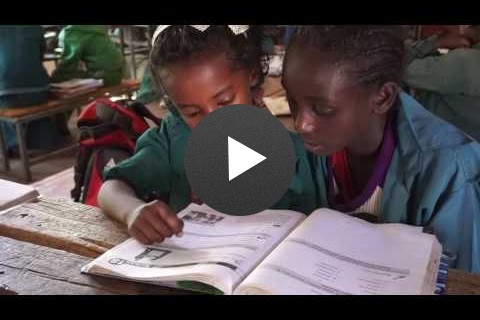
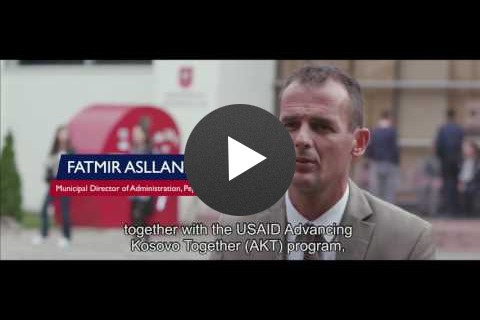
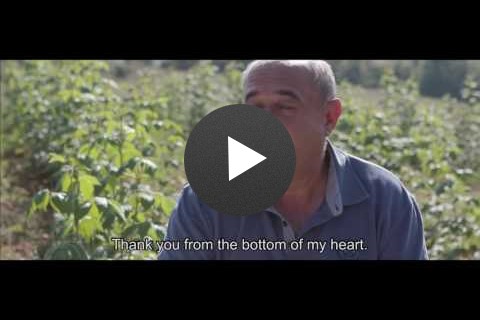
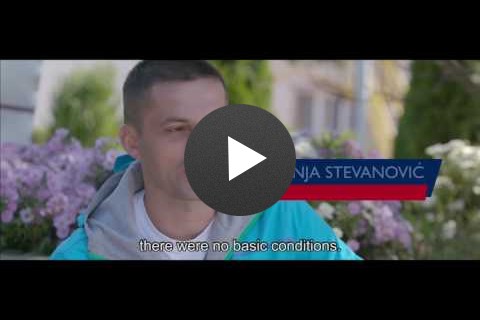
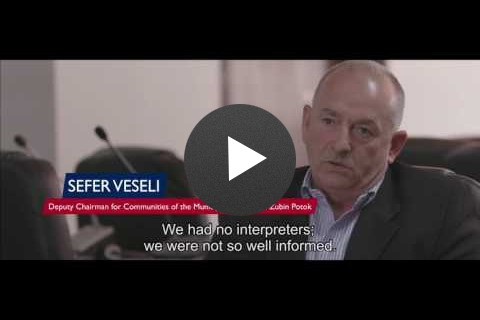
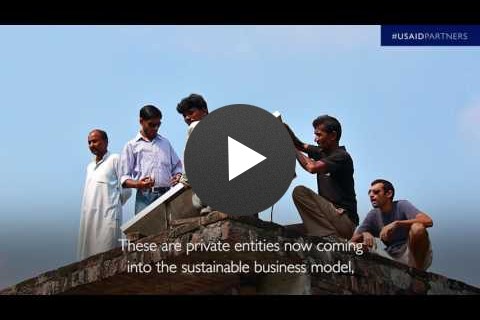
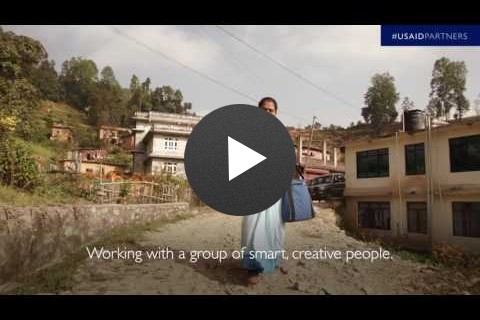
Comment
Make a general inquiry or suggest an improvement.